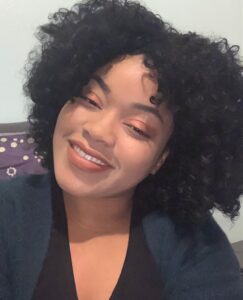For record club I chose the song Cherry by Jungle. Jungle is a fascinating band to me because they started as a minimal band of just two men. They worked mostly with electronic recordings but chose to expand to a seven-piece band when performing live. They did this for live performances because they said it was important for them to “be a collective energy” and bring that to the audience when performing. Because of this they are known to be an incredible live band, I can vouch for that. There are at least 4 members that sing on every track which creates these incredible, full harmonies. The lead two guys primarily sing in their falsetto voices which contrasts in a very apparent way to the deep bass and warm music. It’s a feature that defines almost all of the music by Jungle.
Here’s a live performance of this song:
Jungle begins this song by easing you into the tempo of the song; They start with a faster bass line that settles into a slower tempo which sustains the rest of the song. I found that a really interesting and attention grabbing way to begin a song. To me this song has seismic qualities; the low bass makes you feel just as much, if not more, than you actually hear. The duo has said that they wish to “create a world” with their music to make it an experience. When I listen to this song with headphones I personally feel like I am immersed in the world of Jungle.
When I was looking for the exact genre of the band it was difficult to settle on just one or two. There are so many different genres that they fall into that one reporter went as far as to say they were “undefinable”. I feel that the genres funk, neo-soul, and electronic are best able to describe their unique musical style. I love the use of electronic non-instrumental sounds that they incorporate into their music. They combine those, a deep bass, and repetitive lyrics to create a hypnotic feeling. One of my favorite parts is the synthesized effect on the lead singer’s voice during the bridge. I felt that the sparing use of voice synthesizing in this song made that moment in the bridge that much more alluring.
The lyrics, although repetitive, are powerful. As was mentioned in class it could be repetitive because the band has one clear message they want to express. “You’re never gonna change me, I was already changing” is a powerful sentiment about growing on your own and finding yourself. “Flowers in the garden that won’t grow. Flowers on the train, it’s not the same. Life won’t grow if we never change.” My personal interpretation of these lines is that as we grow as people our ideals and desires can change and we have to be aware of this and accept it. There is this cliche idea that we should all grow up and have a nice house with a garden, picket fence, etc. but that’s not true for everyone. Some people can’t grow a garden, they settle for buying a house plant for their apartment and although it’s not the same it doesn’t mean it’s wrong. If we don’t adjust our opinions and expectations then we start to tread water, but opening yourself to something new even if it’s not what you expected will allow you to grow and push you closer to a happy life.
The music video is beautiful, I highly suggest checking it out:
Terms:
Electronic: Music primarily created using electronic musical instruments or electronic music technology.
Falsetto: Male voice above usual bass or tenor range, an effect accomplished by using only half of the vocal cords.
Funk: Genre focused on strong rhythmic grooves of bass lines. Typically consists of a complex groove with rhythm instruments playing interlocking grooves.
Harmony: When two or more individual notes are played simultaneously to form a cohesive whole.
Hypnotic: Anything mesmerizing or spellbinding. Readily holding the attention.
Neo-Soul: Style of music that emerged from soul & contemporary R&B. Distinguished by a less conventional sound than contemporary R&B with incorporated elements from funk, jazz fusion, hip hop, etc.
Seismic: Very low bass that you feel rather than hear.
Sound Synthesis: Shaping and modulating sounds using components like filters, envelopes, effects, etc.
Tempo: Time, the overall speed of a piece of music.
Warm: Good bass, adequate low frequencies.



